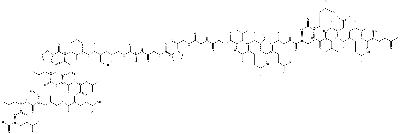
C-Peptide (rat) Trifluoroacetate is a synthetic version of the rat proinsulin connecting peptide, commonly referred to as Insulin 1 Precursor (57-87) (rat), Preproinsulin 1 (57-87) (rat), Proinsulin 1 (33-63) (rat). This peptide plays a crucial role in insulin production, where it links the A and B chains of proinsulin. During insulin biosynthesis, C-peptide is enzymatically cleaved from proinsulin in the pancreas, releasing both C-peptide and insulin (composed of the A and B chains bonded together) into the bloodstream in equimolar amounts.
Applications in Research and Clinical Trials
C-peptide (rat) is a highly valuable biomarker for assessing endogenous insulin secretion, making it indispensable in both clinical diagnostics and research settings. The measurement of C-peptide under standardized conditions offers a sensitive and clinically validated method for evaluating beta-cell function in the pancreas, especially in patients with type 1 diabetes. It is the primary outcome measure in clinical trials aimed at preserving or enhancing endogenous insulin production in these patients.
Research on the cellular effects of C-peptide has demonstrated that it binds specifically to a G-protein-coupled membrane receptor within the nanomolar concentration range. This binding triggers Ca2+-dependent intracellular signaling pathways, leading to the activation of Na+-K+-ATPase and endothelial nitric oxide synthase. In experiments with streptozotocin-induced diabetic rats, administration of C-peptide resulted in a significant increase in whole-body glucose turnover.
|  https://www.lifetein.com
100 Randolph Road, Suite 2D,
Somerset
USA
New Jersey
08873
https://www.lifetein.com
100 Randolph Road, Suite 2D,
Somerset
USA
New Jersey
08873
 https://www.lifetein.com
100 Randolph Road, Suite 2D,
Somerset
USA
New Jersey
08873
https://www.lifetein.com
100 Randolph Road, Suite 2D,
Somerset
USA
New Jersey
08873